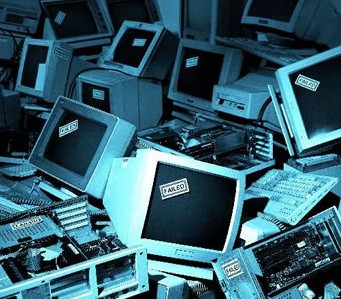 In the future, mainland tourists who purchase laptops in Hong Kong may also have to pay at least 100 yuan (Hong Kong dollar, the same below) for disposal of waste electrical and electronic products. The Hong Kong Government disclosed yesterday that it plans to implement a mandatory producer responsibility plan for the waste recycling and disposal of five kinds of common electrical and electronic products. The Hong Kong Government proposes that when consumers purchase electrical appliances in Hong Kong in the future, they need to pay a pre-payment for the recycling fee. The charge level is between RMB 100 and RMB 250, and retailers are required to provide mandatory recycling services.
In the future, mainland tourists who purchase laptops in Hong Kong may also have to pay at least 100 yuan (Hong Kong dollar, the same below) for disposal of waste electrical and electronic products. The Hong Kong Government disclosed yesterday that it plans to implement a mandatory producer responsibility plan for the waste recycling and disposal of five kinds of common electrical and electronic products. The Hong Kong Government proposes that when consumers purchase electrical appliances in Hong Kong in the future, they need to pay a pre-payment for the recycling fee. The charge level is between RMB 100 and RMB 250, and retailers are required to provide mandatory recycling services. According to government documents, the total amount of waste electrical and electronic products produced in Hong Kong in the past year exceeded 70,000 tons. At present, more than 80% of waste electrical and electronic products produced in Hong Kong will be recycled, but most of them are sold to developing countries through the sale of second-hand goods to reuse and recycle useful materials. The Hong Kong Government believes that although the current recycling rate of waste electrical appliances in Hong Kong is very high, relying on exports is not a sustainable strategy.
In April last year, the Hong Kong Government launched a public consultation on this issue. The results showed that the public generally supported legislation to implement a mandatory producer responsibility plan. The plan calls for the construction of a waste electrical appliance factory in Hong Kong; compulsory retailers to provide free recycling services; the Hong Kong Government selects management contractors to operate waste recycling through tenders; and consumers purchase new products under the “polluter pays†principle Electric appliances must be prepaid for recycling.
80% of the public surveyed in the public consultation agreed that Category 5 appliances should be subject to compulsory recycling, ie, televisions, washing machines, refrigerators, air-conditioners and computer products (ie, desktop computers, laptops, printers, scanners and monitors). Over 80% of waste electrical appliances generated in Hong Kong.
In view of Hong Kong's current lack of a factory with complete waste electrical processing capacity, the Hong Kong Government plans to reserve 3 hectares of land in the Tuen Mun EcoPark and spend RMB 400 million to build a waste electrical and electronic product recycling plant. It is expected that at least 30,000 tons will be processed each year. waste. The Hong Kong Government expects the contractor's annual operating expenses to be approximately 220 million yuan.
The purchase of five categories of compulsory electronic products for tourists also requires prepayments, and the Hong Kong Government is of the view that the addition of a refund mechanism will increase the huge administrative costs and will not consider setting up refund fees for tourists.
Panel Light,LED Downlight,LED Flexible/Rigid Strip Co., Ltd. , http://www.nsledstrip.com
